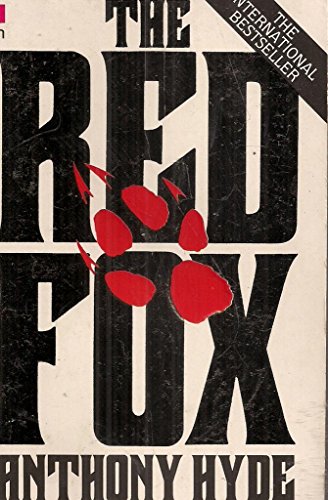
Canadian writer Anthony Hyde’s first novel, The Red Fox was published in 1985; the year that Mikhail Gorbachev became leader of the Soviet Union.
The Red Fox stands then as one of the last thrillers of the pre-reform Cold War era. It provides an example of that fascinating phenomenon where fiction proves more accurate in terms of forecasting than do the efforts of experts paid to analyse.
Intuition, applied in the service of entertainment but in the light of intelligent observation, can trump data-driven models bound by assumptions of continuity.
Russia in Fiction loves stumbling across Russia-related novels on the shelves of second-hand bookshops. We came across The Red Fox whilst browsing through one of several such shops on Lincoln’s famous medieval street, Steep Hill. At 50 pence, it was a snip. And such value was amplified by the quality of the story.
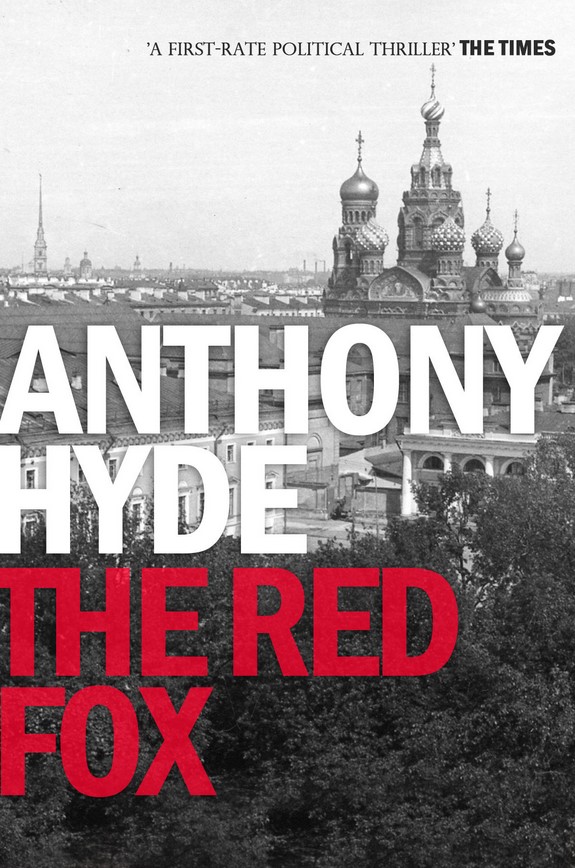
(The e-book version of The Red Fox, with a somewhat generic Moscow cityscape cover, can now be bought for a mere four times that amount. Still a bargain.)
Published in the year of Gorbachev’s accession to the General Secretaryship of the Communist Party of the Soviet Union, 1985, it is safe to assume that The Red Fox was conceived and written during the Andropov and Chernenko years (1982-85), when the stagnant ennui of the late Brezhnev period became amplified by old and sick leaders taking power and dying, pausing only to serve as a metaphor for the Soviet state.

Anthony Hyde captures perceptively the faded and tired commitments of his protagonists to their ideologies. Spies on both sides act with a weary cynicism, their ideological fire long since doused by the events of the previous few decades.
A running motif sets out the stages of such disillusionment. From the 1930s, when Communism was young and vibrant whilst capitalism seemed to be dying in the Great Depression; through the Second World War, with the worthy cause of defeating Nazism providing a carapace against the seeds of doubt sown by Stalinism; to the creeping onset of disenchantment hastened along its path by Soviet invasions of Hungary in 1956 and Czechoslovakia in 1968 (though in a rare factual error, The Red Fox twice dates the crushing of Czechoslovakian dissent under the tracks of Soviet tanks to 1963).
The hero of The Red Fox is a familiar figure in Russia-related thrillers —the western expert on Russia inadvertently drawn into a series of events of great significance. Robert Thorne applies his knowledge of Russia, its language and history, to solving the mystery of the disappearance of his former fiancée’s father. (That is ‘former fiancée’, not wife). To complicate things further, it is clear from the opening pages, that Thorne’s own father’s suicide some 20 years earlier has some connection with current events.
The Red Fox reminds Russia in Fiction very much —in these respects, as well as in a number of its settings, its tone, and its episodic jumps from clue to clue, town to town, country to country, violent encounter to violent encounter— of Joseph Finder’s The Moscow Club, published some 6 years later, in 1991 (and reviewed by Russia in Fiction last week).
As the latter was dubbed the first great post-Cold War spy thriller, then juxtaposing it with what Russia in Fiction is calling the last great espionage thriller of the pre-reform Cold War era provides an enlightening reminder of how fast events moved during Gorbachev’s tenure in power, bookended by the publication of these novels.
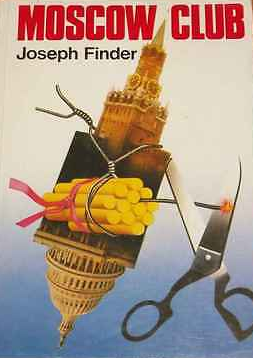
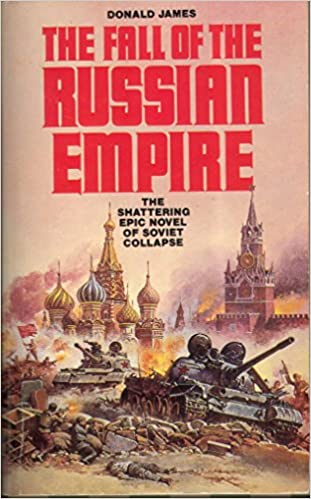
The most interesting element of The Red Fox from the Russia perspective is that it represents a relatively early example of someone looking forward to what would replace an apparently dying Communism in Russia. It was published only a few years after Donald James’ marvellous The Fall of the Russian Empire (1982), which also asks such questions. Both Anthony Hyde and Donald James come to similar conclusions about the power of Russian nationalism. It is striking too how many of the broad conclusions about Soviet Russia which Hyde presented nearly four decades ago still hold true in Putin’s Russia.
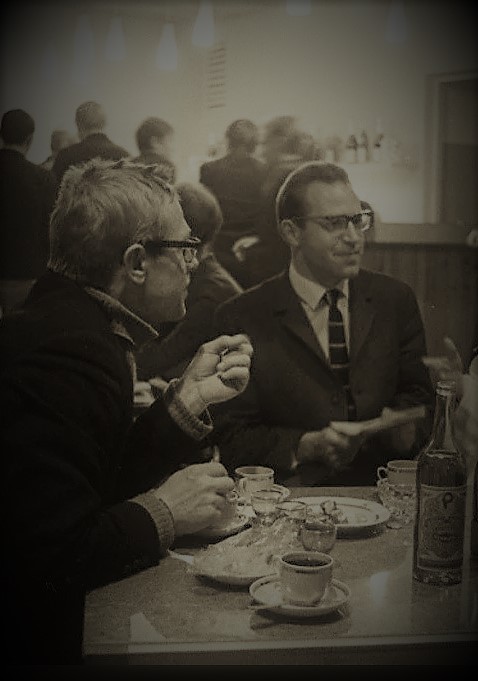
Hyde puts his conclusions in the mouth of a disillusioned KGB officer, sitting in a Moscow café and dripping information to Thorne.
‘You see, what people in the West don’t understand is that the liberal dissidents are very few in number and are almost all drawn from the élite elements of Soviet society’
The Red Fox, p. 237
Coincidentally, the very same point using almost the same phrase —though without the word ‘dissident’— was made to Russia in Fiction the day this review was written; only in our case it was made about contemporary Russia by a Russian political scientist with whom we lunched.
‘… the “liberal” dissidents couldn’t succeed —they’re too identified with the West, with foreign ideas. Ordinary Russians, even if they’re unhappy with the state of affairs, can find nothing there —so they look elsewhere. They look to themselves, to Russia, to their past …
What I’m talking about began in the ‘sixties, with students. But our students in those years were different from your own. Their rebellion was expressed by looking back, searching for old ways rather than new ones. They became fascinated by the Russian past, and took little trips to Vladimir and Suzdal to look at the old buildings and monuments.’
The Red Fox, p. 239

Hyde spots, earlier than most thriller writers, indeed than many analysts, that as Communist ideology cracks, from underneath it emerges Russian nationalism and patriotism.
‘In Russia, Mr Thorne, “communism” is not even a bad joke any more, just an old one. It simply doesn’t work, and even when it does, it works to no purpose …
That’s the trouble. And “democracy”, is not Russian, “freedom” is not Russian, “human rights” are not Russian. These ideas come from the West, where Napoleon came from, and Guderian’s tanks. That is why the liberal dissidents have always been doomed.’
The Red Fox, p. 238
Hyde also, and presciently given that he is writing just before Gorbachev comes to power, takes the Party leadership seriously as a potential source of reform.
‘With us, all change starts “upstairs”, in the Party. But think of the Party for just a minute. Do you imagine it is composed of fools? Of idiots? Do you think our good Party people do not see the grave problems that now face the Soviet Union? Naturally they do … but how do you … keep the Party in power? How do you do that and ensure that Russia doesn’t fall into pieces? Ideology, belief, faith, myth —this is the glue that holds a nation together. If you take the system apart, and try to put it together in a different way, you must have a new glue. Do you see? …
Some are Stalinists: for them it is just a chance to return to the “hard line” of the past. Others truly believe what they say; they talk about a “new vision of Russia”‘.
The Red Fox, pp. 240-241
In The Red Fox, the disillusioned KGB man sets out the notion that across the Soviet sytem, Russian nationalism is being reborn, in both extremist and moderate variants, in the Party and in the military, representing a way to keep the rulers in power.
‘Nothing will happen about this today or tomorrow, or even next month … but five years from now? Who knows …’
The Red Fox, p. 242
From a book published in 1985, this is atonishingly prophetic.
Five years later the rise of nationalism had brought Communism virtually to extinction, and was bringing the Soviet Union to collapse.
Nearly forty years later nationalism is used by the Putin regime as the epoxy glue holding Russia together —as the name of the dominant political party, United Russia, suggests. Extremist nationalism remains a force too, and the liberal stream still represents a minority interest which suffers in the minds of many, perhaps most, Russians from being seen as a Western, un-Russian import.
All this, and a damn good, page-turning read too. The Red Fox is a fast-moving, densely plotted, and well-written story which kept Russia in Fiction up into the small hours to deliver a denouement worth waiting for.
Quite a find for 50 pence.